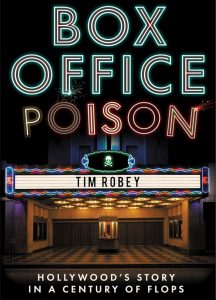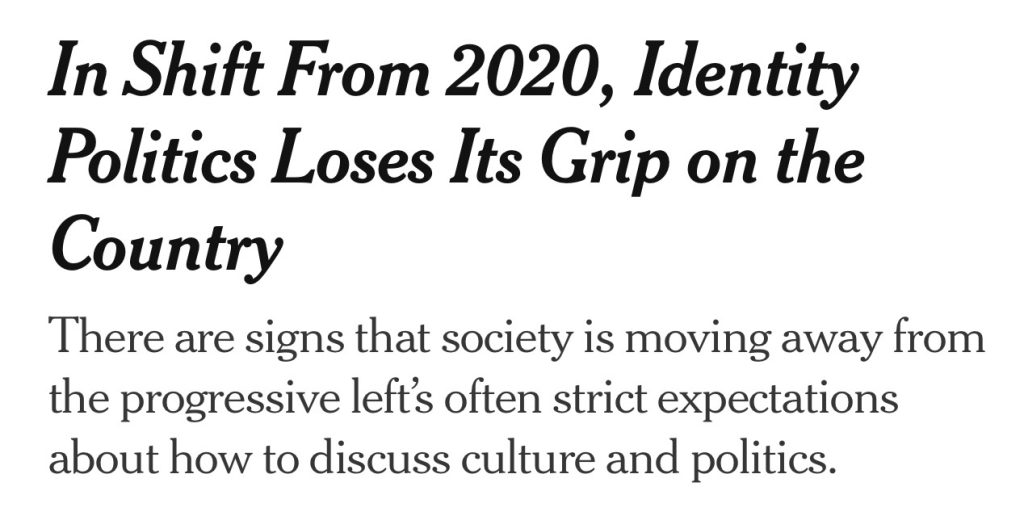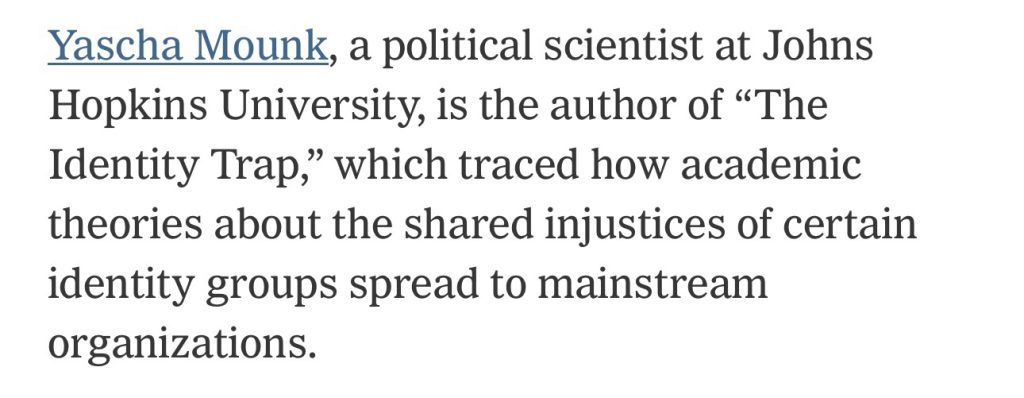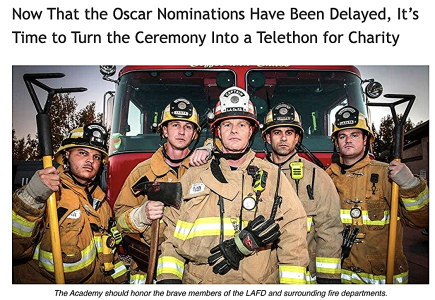Sasha Stone has been working on this Hollywood-has-succumbed-to-a-woke-apocalypse Tablet story for a few weeks now. It finally surfaced last night (2.25). It’s called “Awards Daily, was all but assassinated by Rebecca Keegan and The Hollywood Reporter last summer. That aside, Sasha’s article is accurate, well written, honest, straight-shooting. I wanted something meaner and more scathing, but that’s me.

Excerpt: “The woke code is like the Hays Code. The rules weren’t written down, but everyone knew what they were. After Trump’s win, the fear of racism morphed into Salem-like episodes of mass hysteria that would find its way to the Oscars, too. Suddenly, it wasn’t just most people who were racists. Most movies were racist, too. La La Land was racist, so Moonlight had to win. Three Billboards Outside Ebbing, Missouri was racist so The Shape of Water had to win. By the time Green Book came along, everyone in Hollywood had lost their minds.
“After the Green Book [foolery], the Academy began adding new members and purging their older members, with the objective of adding more women and people of color. The only requirement would be that they were somehow involved in film and that they weren’t white and male. Women in Hollywood saw this new rule as a perk for going along with the new system, which targeted white men but not white women.
“Over a period of just a few years, the Academy added approximately 3,000 new members, bringing the total membership of the Academy to around 10,000. Of necessity, most of the new instant Academy members were from foreign countries—the same way most “students of color” at prestige American universities these days are the children of wealthy foreign elites, not the products of our collapsing inner cities.
“The sea change in the Academy’s membership was first felt in 2019 when the South Korean art house film Parasite beat some of the most critically acclaimed and profitable films from American film studios, including Once Upon a Time in Hollywood, Joker and 1917. Parasite killed two birds with one stone. Had it not won, all of the winners that night from the major categories would have been white. Parasite ensured that the Oscars made history and had glowing headlines the next day.
“But they also proved something else: that the Oscars were no longer as invested in their traditional job of fortifying the American studio system. Most of the members worked in the industry and cared about its continued success. International voters, whose own film industries are often heavily subsidized by their governments, have no such investment.
“As Hollywood began to rebuild after COVID, there was a shift away from reporting on the domestic box office and more on the global box office, which paints a more optimistic picture of the industry. This is the second year in a row that there are two films double dipping in the Best Picture and International Feature categories.













 ,/p>
,/p>














